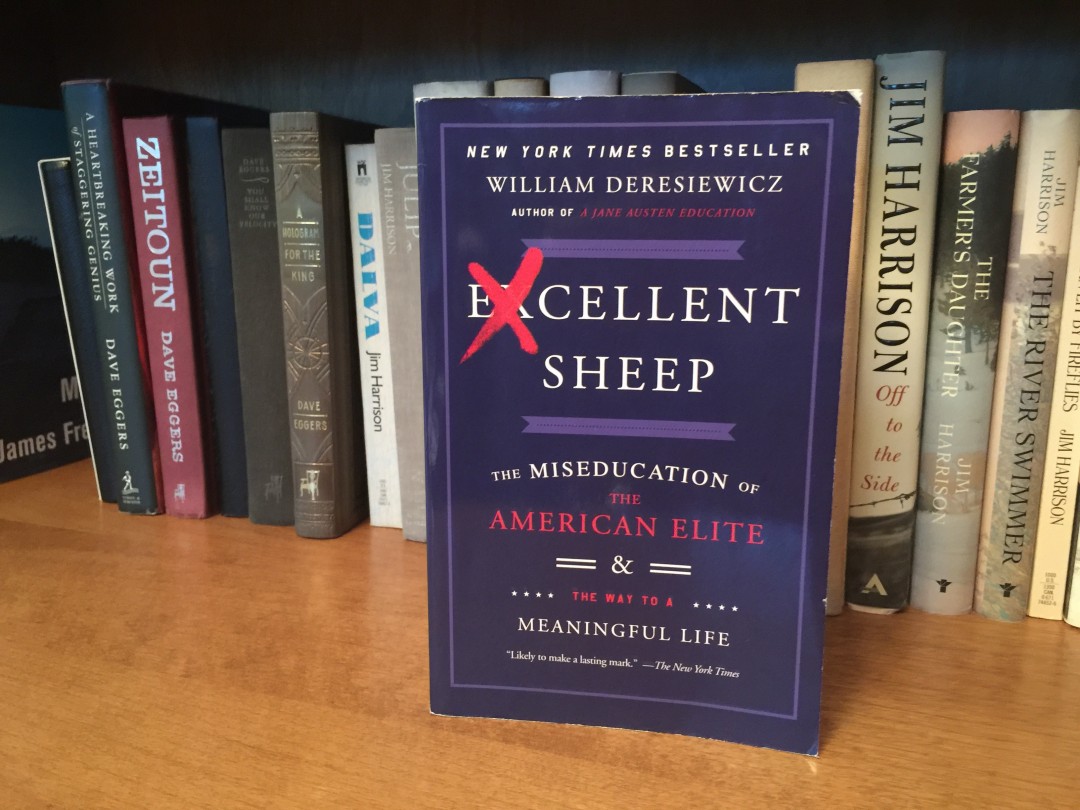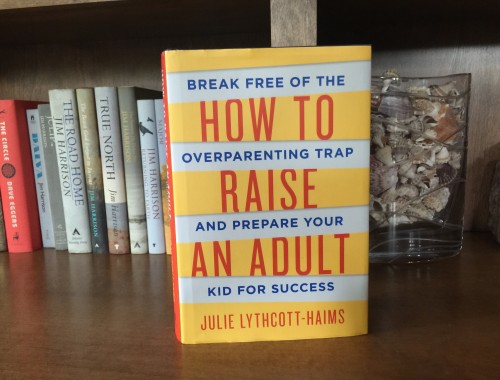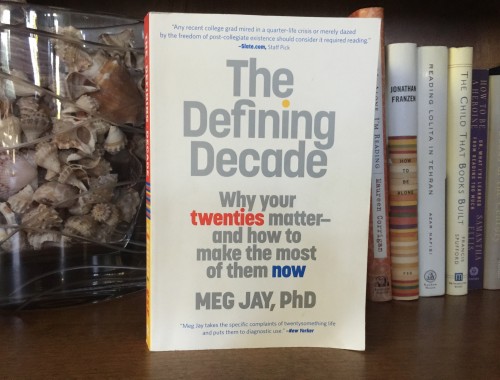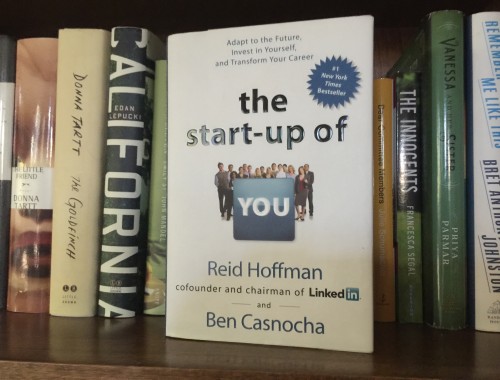It’s hard for me to resist a book like Excellent Sheep with a subtitle reading “The Miseducation of the American Elite & the Way to a Meaningful Life” and William Deresiewicz delivers right out of the gate. Noting that “Questions of purpose and passion were not on the syllabus,” he drives home the point that students who excel early and consistently enough to even have a shot at the lottery ticket at the so-called elite American universities are fairly uniformly miserable, as with this horrifying quote:
“One young woman at Cornell summed up her life to me like this: ‘I hate all my activities, I hate all my classes, I hated everything I did in high school, I expect to hate my job, and this is just how it’s going to be for the rest of my life.’”
This isn’t an isolated quote of total misery in the book. I’m pretty sure most adults would say if something is that hateful about your life, it’s time to make a move to change things. While most of us well-ensconced in adulthood recognize you might briefly have to stick with a terrible job until you could replace it, I think we’d universally suggest that replacing it as quickly as possible was a good goal.
I had a hard time with big chunks of the book, as surely not everyone at these few elite schools has lost all sight of the joy of learning in their quest for an A. There must be a non-trustafarian artist or teacher amongst them or another poet or philosopher. Perhaps some are actually happy (and in a more than Camus-like “One must imagine Sisyphus happy” way). I suspect he’d like everyone to major in English or Philosophy. But not everyone wants to consider the kind of life that might best make them happy. Some students do just want an education that enables them to obtain (or perpetuate) a solid standard of living. And not just to consume status material goods but to participate in society, to support a family, to achieve enough skill and power to effect big change in the world.
I’m not at all sure that everyone finds their career to also be a calling. And yet, I think many people deeply enjoy what they do, if only the beauty of their skills in action, developed over time. Or for the lifestyle it affords them, not only in the material sense. In my own case, my career may not have been a calling, but I do enjoy what I do for exactly those reasons: I am both highly skilled and effective, and while it has yielded a high material standard of living, it also permitted me to have a flexible schedule when my sons were young. And while the myth of Odysseus’s journey might well be a great metaphor for a grand academic journey, I think most people might better relate to a more detailed story about Penelope, his wife at home, keeping suitors at bay for decades while thereby holding the kingdom together. Not nearly as glorious a story as that of the wanderer, but if no one chooses to maintain the homefires, the heroic wanderer is merely homeless.
As this blog is about rapidly launching a career, you’d think I might dislike a book like this. Reviewing a book that reviles hard-nosed careerism amongst college students, that derides double majors that cram schedules so full that there are no chance encounters with life-changing, mind-expanding subjects (that you frequently thought held no interest at all), and encourages experimenting, trying out new selves, with no driving sense of purpose, you might think I’d attack everything in here. The contrary is true, I agree with much of what Deresiewicz writes. Here’s why: The biggest waste of time in launching a career is launching entirely the wrong career. If you don’t spend you college time trying out different things, you’re likely to find that the first few years of working have been skill-building, but in the wrong field. Or, even more expensive in time and money, you’ve gone on to graduate school to get a degree you don’t want to use. Continual course corrections are to be expected, but they are far more enjoyable because you’ve found new opportunities and interests you want to pursue professionally than if you are fleeing situations where you’ve plateaued, even if only in terms of your own interest and passion for the field.
Recommendation: It’s a bit of a rant at times, but it’s worth considering his points. If you are the parent of an unhappy student of any age who is scoring all the checkboxes for “success” you will find this enlightening and I urge you to read it quickly. Given the recent reports of high-achieving student suicides, these are important insights. If you’re a young professional in the “wrong” career (one that isn’t fulfilling), then you may also find encouragement to help you reframe your goals. For the rest of us, it’s a very interesting reflection. Likely a terrific book club pick as there’s a ton to discuss, although it could get quite heated in discussions.





No Comments